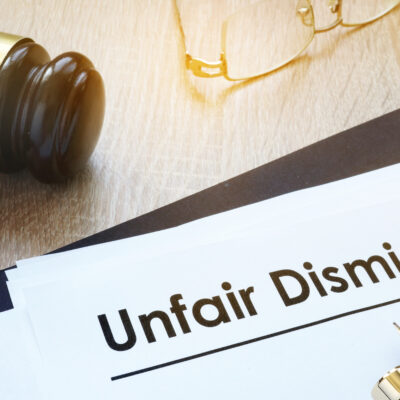What Classifies as Unfair Dismissal?
Being dismissed from your job can be overwhelming and come as a surprise to some. Whilst there are fair reasons for being fired by your employer, it’s important to know when a dismissal becomes ‘unfair’ and when you have the grounds to take legal action.
Dismissals with or without notice periods
You should be given reasonable notice by your employer if they choose to dismiss you from your job. In most cases, the employee will also be entitled to the same amount of pay which they’d receive if they completed their notice period. However, there are factors which may impact their normal pay such as:
- How much annual leave has been taken
- Money being owed for training courses
- Time off work
An employee can be dismissed without a notice period if it’s due to gross misconduct (when an individual has done something very serious or that has had a very serious impact on the business).
When can you take action?
There are two main types of situations when you can take legal action against your employer when you’ve been dismissed, these include ‘unfair dismissal’ and ‘constructive dismissal’.
Unfair Dismissal
Firstly, it’s essential to know whether you have been dismissed unfairly in the eyes of the law. In most situations, it is also essential for the individual to be employed for a minimum of 2 years in order to challenge the dismissal but other qualifying factors include:
- Requesting flexible working
- Being pregnant or taking maternity leave
- Requesting family leave such as parental, paternity or adoption leave
- Joining a Trade Union
- Requesting time off for Jury Service or legal industrial action which lasted 12 weeks or less
- Asking to be paid minimum wage
- Whistleblowing (reporting wrong-doing in the workplace)
- Being forced into retirement (compulsory retirement)
It’s also important to remember to act quickly. You’ll only be able to challenge the dismissal within 3 months less a day starting from your last day of employment.
Constructive Dismissal
In these situations, an employee may have felt as though they had no choice but to resign due to something that their employer has done. This is legally known as ‘constructive unfair dismissal’.
An employee will be entitled to make a constructive dismissal claim if they resign due to genuine belief that their employer has seriously breached their employment contract. This could include:
- Repeatedly not being paid correctly without genuine reason
- Instances of bullying or discrimination
- Employer refusing to investigate a grievance
- Proceeding to make unreasonable changes to the workplace or work pattern without agreement
- Sudden demotion without valid reason
Constructive dismissal cases can be difficult to win, if you have received reliable legal advice that you do in fact have a valid case then it is important that you make the decision to resign as quickly as possible. Whilst this may seem like a drastic action to take, your employer may argue that you accepted the conduct or treatment due to the fact that you stayed.
What to do if you’re dismissed
If your employer threatens you with dismissal (or you are dismissed) then you should consult a third party to resolve the issue via mediation, conciliation and arbitration. If you are part of a Trade Union then you can also speak with your union representative for advice.
Employment Tribunals
In the event that you are unable to resolve the dispute between yourself and your employer, you’ll need to proceed to an employment tribunal.
Our reliable and friendly team are experienced in representing both the employer and employee when situations like these arise. You can find out more about our fees and the process as a whole by visiting our employment tribunal services page.


